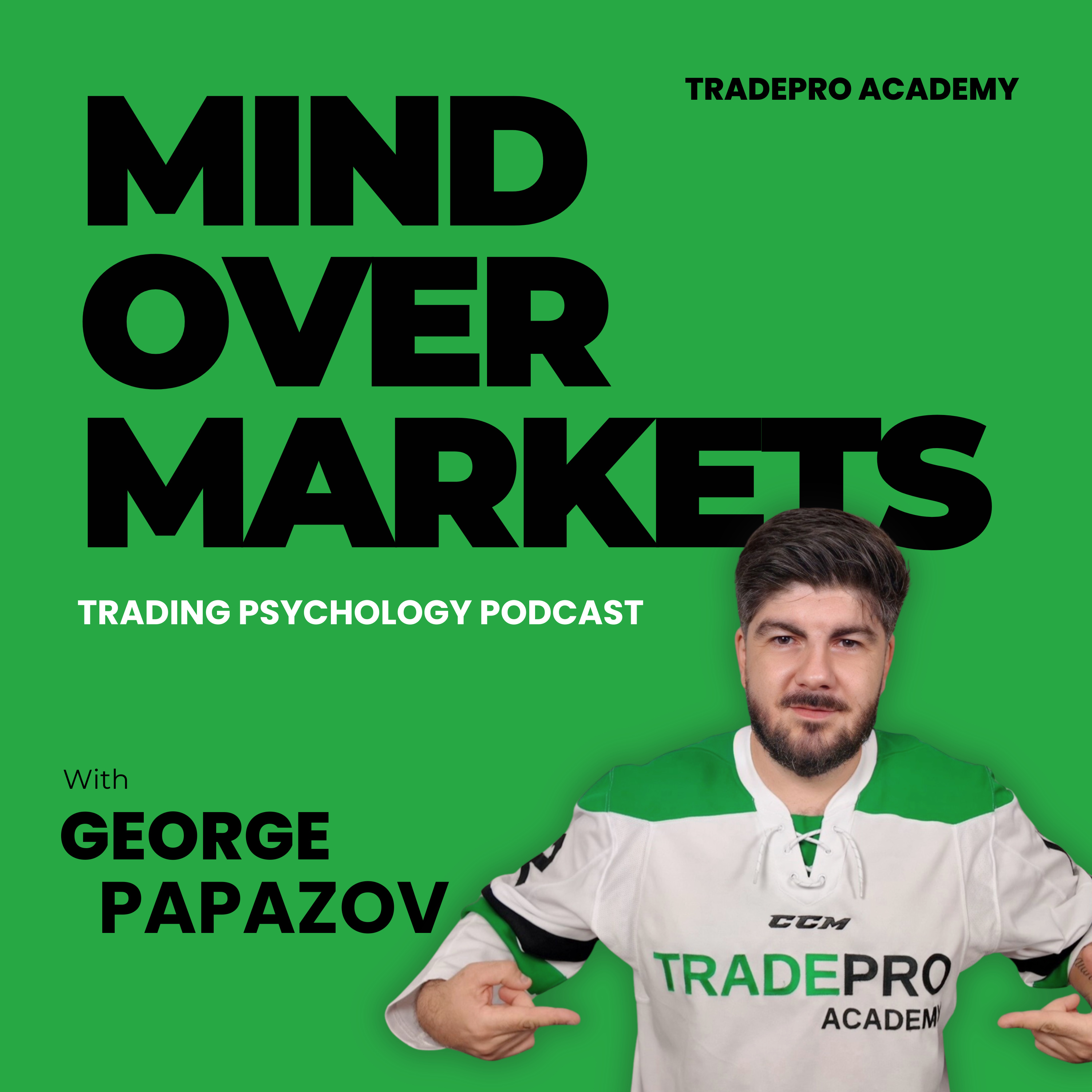

Mind Over Markets: Trading Psychology Podcast
George Papazov
Mind Over Markets is the trading psychology podcast for serious traders ready to master the real edge — their mind. Hosted by George Papazov, founder of TRADEPRO Academy, this show helps you break emotional loops, regulate impulses, and build a confident trader identity. Learn how to rewire your mindset using NLP, coaching, and performance psychology. Ready to go deeper? Unlock the full ASCEND psychology program inside TRADEPRO Academy.
Episodes
Mentioned books

Jun 3, 2021 • 1h 2min
How to Find Your Trading Style
In today’s episode, George is joined by options trader Victorio Stefanov, of TRADEPRO Academy. George and Victorio talk about the different trading styles, and how you can decide yours to match your personality and unique goals. During this episode, we deep dive into these topics and more: Breaking down the 3 styles: day trading, swing […]

May 27, 2021 • 31min
How to Trade News Events like the Pros
In today’s episode, we are going to be discussing the psychology behind trading news events, and how to actually trade them like professional traders. The reality is so different from what new traders assume, it will shock you! George talks about the two different types of news events, and the different approach you need to […]

May 20, 2021 • 1h 33min
Demystifying Order Flow with Job
In this exciting episode, we have a guest interview with Twitter futures trader and former member Job. You can follow Job here on Twitter. On the interview we discuss everything about order flow trading, and why this technique provides a trading strategy edge. We discuss why trading the future market is a great opportunity: Centralized […]

May 13, 2021 • 38min
Why The Trend Is Not Always Your Friend
In today’s episode, we discuss why the trend is not always your friend when it comes to trading. There’s an old saying in the financial markets that the trend is your friend, meaning that you will do well as long as you place your trades onside with the current price trend. The only problem is […]

May 6, 2021 • 51min
Trade What You See Not What You Want to Happen
In today’s episode, we are going to discuss why it’s so important to trade what you see and not what you want to happen! You will often hear traders throwing around the phrase “trade what you see”, however, the reality for most traders is the opposite – they trade based on what they think will […]

Apr 29, 2021 • 54min
Tips and Tricks to Grow a Small Trading Account
In today’s episode, we are going to be discussing some tips & tricks to help you grow a small trading account! The best investment in life is one in yourself and when you are starting out in any new industry, it’s best to start small! The reason for this is that your mistakes are the […]

Apr 22, 2021 • 56min
Dealing Effectively with Trading Mistakes
In today’s episode, we are going to be discussing how traders can deal effectively with execution mistakes! Mistakes happen to everyone and they can be extremely frustrating especially because, in this industry, they can and often do, end up costing us money. What defines you as a trader is not whether you make mistakes or […]

Apr 15, 2021 • 45min
What to Expect on Your Journey to Profitable Trading
In this episode, we provide you with a layout of what the journey to consistent profitability actually looks like so that you can set your expectations for what lies ahead! A trading journey is never the first thing a trader really considers..in fact, it’s the end result you crave. The money, the cars, the freedom […]

Apr 8, 2021 • 37min
Don’t Confuse Brains with a Bull Market
In today’s episode, we discuss how bull markets, much like the one we are currently in, can let new traders get away with some bad habits that will eventually lead to blowing out unless they get corrected as soon as possible. A False Sense Of Confidence Beginner traders often get overconfident when they find a […]

Apr 1, 2021 • 1h 25min
Student Interview with TRADEPRO Member Zalman Sulmayanov
In this episode, we’re excited to bring to you another student interview with TRADEPRO member Zalman Sulmayanov! We recently sat down with Zalman for a great discussion on his trading journey since finding TRADEPRO Academy, what he has learned along the way to profitability and how he continues to develop and grow as a trader. […]


